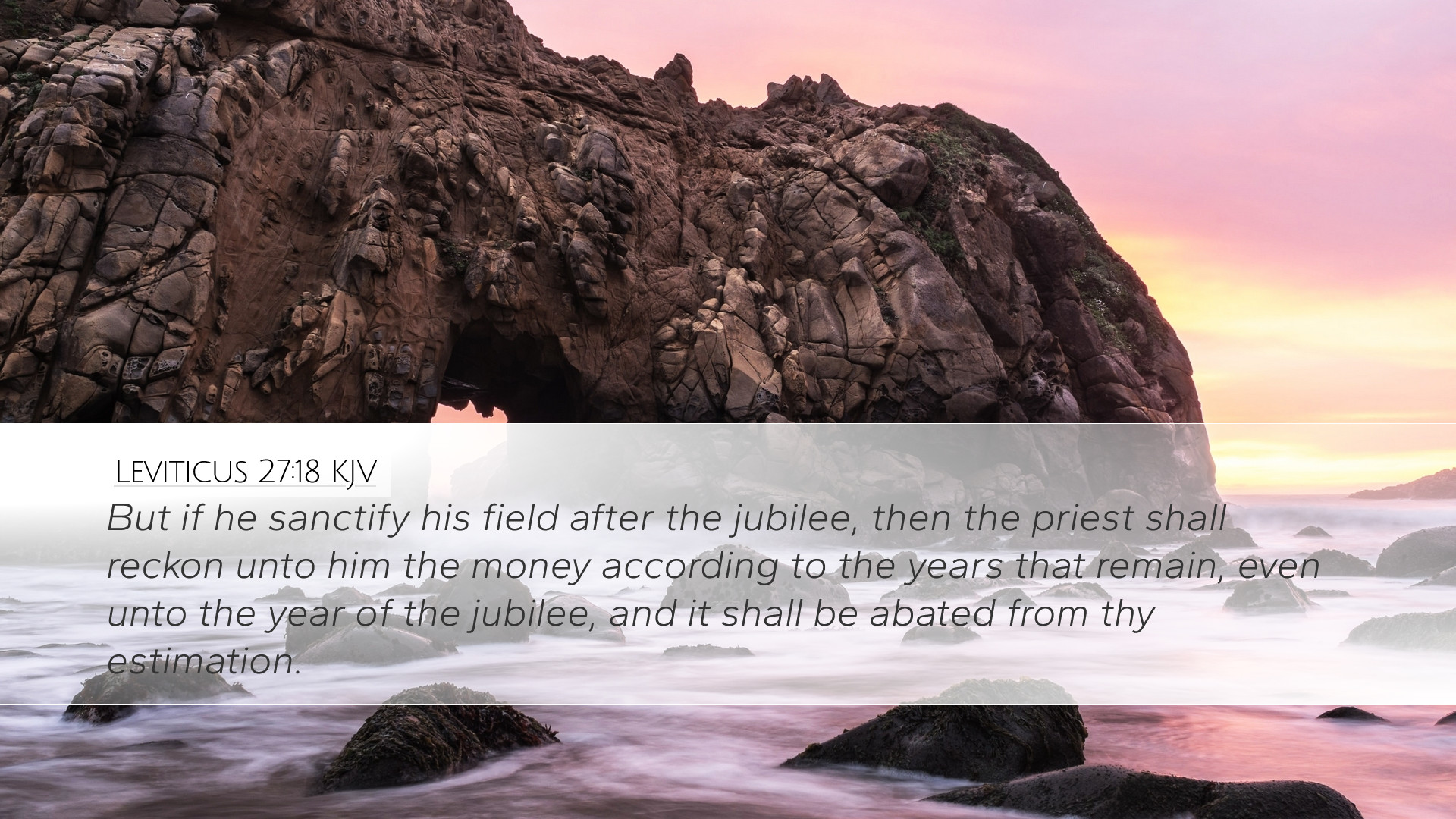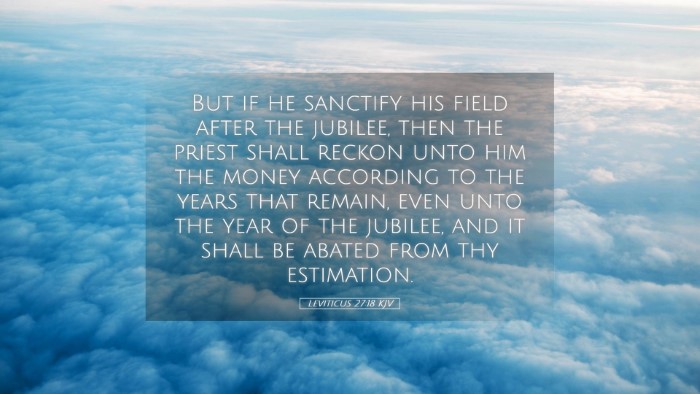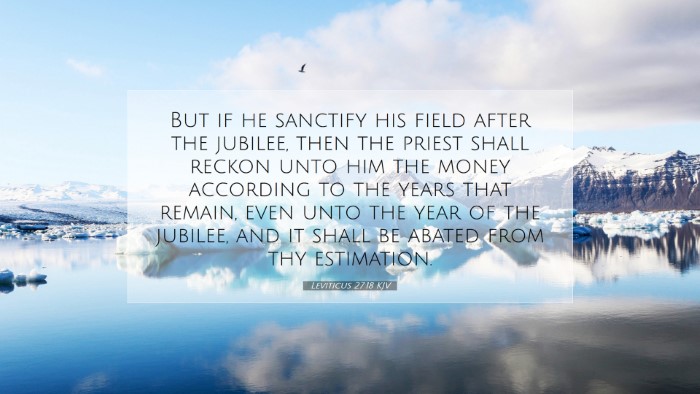Commentary on Leviticus 27:18
Verse: "But if he sanctify his field after the jubilee, then the priest shall reckon unto him the money according to the years that remain, even unto the year of the jubilee, and it shall be abated from thy estimation."
Contextual Background
This verse is part of God's instructions concerning vows and valuations regarding property and people within the Israelite community. Leviticus 27 discusses the regulations for dedicating property to God, particularly with the intent of either redeeming it or relinquishing it. Understanding these laws is essential, as they reflect the theological underpinnings of Israelite worship and the socio-economic life of the people.
Theological Significance
The principle here is grounded in the concept of jubilee and redemption, both integral themes in Israel's socio-religious order. The jubilee year, occurring every fifty years, was a time when land that had been sold was to be returned to its original owner. This practice underscored God’s sovereignty over the land and served as a reminder of the people’s reliance on Him as the ultimate owner of all things.
Insights from Matthew Henry
Matthew Henry elaborates on this verse by highlighting the significance of valuing land properly according to its time until the jubilee. He notes that when a field is sanctified, it signifies a commitment to God, where the individual acknowledges divine ownership over their possessions. This valuation is practical and fair, reflecting the justice of God: the priest’s calculation does not merely depend on arbitrary figures but respects the remaining time for which the land can produce, thus ensuring equitable transactions among the Israelites.
Insights from Albert Barnes
Albert Barnes reinforces the notion of the priest's role as a mediator and advisor in these valuations. His commentary emphasizes the importance of the priest not just as a religious leader but also as a participant in the community’s economic welfare. The abatement of the valuation until the jubilee indicates God’s understanding of human affairs—the idea that God desires to mitigate losses and ensure fairness in what may appear as punitive circumstances. Thus, the priest’s calculations serve to preserve the welfare of the community while maintaining the sanctity of the vow made to God.
Insights from Adam Clarke
Adam Clarke places a significant emphasis on the communal and personal implications of this law. He suggests that this regulation ensures that individuals cannot unduly profit from a time-limited situation while fostering an atmosphere of cautious stewardship among the Israelites. Clarke points out that the sanctification of a field implies a serious commitment, and thus the valuation should reflect both the current reality and the spiritual dimension of the dedicator’s relationship with God. This understanding then guides the intent behind the offering and aids individuals in recognizing the seriousness of vows made before the Lord.
Application for Today’s Believers
The principles extracted from Leviticus 27:18 extend into the modern era, offering rich applications for pastoral care, theological reflection, and personal spiritual health. Here are key takeaways:
- Faithfulness in Vows: Believers are reminded of the seriousness of commitments made to God. Just as the Israelites were to honor their vows through proper valuations, so too must Christians approach their spiritual commitments with intentionality.
- Understanding Divine Ownership: Recognizing that our resources are God's gives believers a better perspective on stewardship and generosity. Just as the land was ultimately God's, so are all earthly possessions entrusted to believers.
- Equity and Justice: The church today is called to ensure fairness in dealings and to reflect God’s character of justice in all areas of life, including financial transactions and community support.
- The Role of Leadership: Like the priests in ancient Israel, spiritual leaders must guide their communities in understanding God’s laws, promoting both spiritual growth and practical application of biblical principles.
Conclusion
Leviticus 27:18 serves as a profound reminder of the intersection of faith and daily life. The careful consideration of obligations, valuations, and the heart behind offerings not only strengthens the individual believer's relationship with God but also encourages a healthy community dynamic based on divine principles. As followers of Christ reflect on their own sacrifices and offerings, may they remember the weighty call of stewardship and commitment represented in this biblical instruction.


